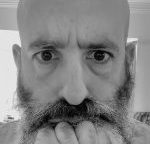
This is the name of a study day I participated-in alongside some of the staff from Mallard Ward this week. It is a wordy title and doesn’t really capture exactly what we expected or what we learned.
Beforehand, some of us had described this as ‘violence and aggression’ training – again, this didn’t seem to fit.
The problem is that we are running a ward caring for older people, many of whom do not realize they are unwell, do not necessarily know where they are, frequently don’t want to not be there and are often afraid.
When trying to care for someone who doesn’t understand what you are doing or why you are doing what you are doing, who, just understands that there is some sort of threat directed at them, no matter how well intentioned – the results are often staff being hit, punched, kicked, pulled, pushed or slapped.
It is sort of an occupational hazard, when attempting to care for older people who are disorientated, this form of attack; as to whether violence and aggression is the right word, I don’t think any of us know; how violent and aggressive can a 95 year old be? The answer is, sometimes, very.
Should the training have been called ‘managing fear and anxiety’ – perhaps; although these emotions aren’t always behind the actions and often the staff are as fearful and anxious as the patients.
We learned about the psychological and physiological responses that take place in our bodies when we experience this sort of conflict, or harm, we learned about the legalities of treating someone who does not want to be treated.
This was the first time many of us had taken the time to explore these ideas openly, in a group, to share our experiences – people trying to do their best, in difficult circumstances, trying to care, when their care isn’t always well received.
So, what do we call it when an 80 year old man punches you? Most of our patients lovingly receive the care that is offered, they appreciate and understand however piecemeal, our intentions, or our sometimes, painful interventions.
Balancing, walking the tightrope that is care is difficult.
I am lucky, I work with a team of people who see the bigger picture, who understand that a meaningful life is one in which we help others, put the needs of others before our own, and thank goodness, for I hate to think where we would be if this compassion, this care, was not the way we are.
Take a moment to think of those nurses, healthcare assistants, therapists and domestics who daily see beyond the fear and the worry of an old person, to the human being who is hiding in the shadows, obscured by layers of disease, for they are what keep us human.

